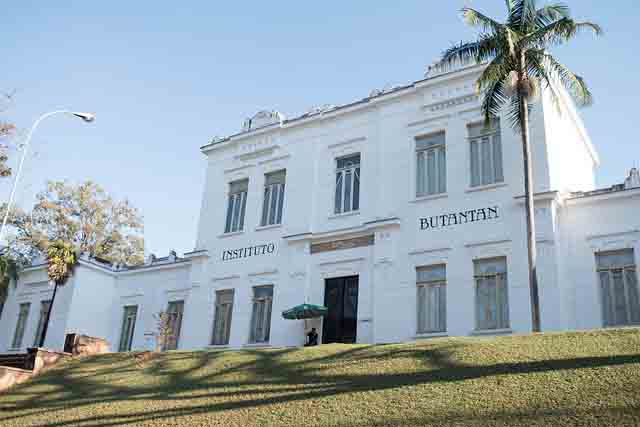Introduction
For those with a passion for aviation and a knack for working with their hands, the Aviation Institute of Maintenance (AIM) could be the launchpad to a rewarding career. Founded in 1969, AIM has a long-standing reputation for excellence in training aspiring aircraft mechanics and technicians. This article delves into the world of Aviation Institute of Maintenance, exploring its programs, accreditation, career opportunities, and what sets it apart in the aviation maintenance education landscape.
Taking Flight with Aviation Institute Programs
AIM’s core focus lies in aviation maintenance programs, equipping students with the knowledge and skills to keep the skies safe. Their FAA-approved Part 147 curriculum covers a comprehensive range of topics, including:
- Airframe & Powerplant Mechanics: This core program prepares students for the Federal Aviation Administration (FAA) certification exams, qualifying them to work on both the structural components (airframe) and the engines (powerplant) of aircraft.
- General Aviation Maintenance: This program caters to those interested in working on smaller aircraft, including private jets, turboprops, and piston-engine planes.
- Unmanned Aircraft Systems (UAS): Recognizing the burgeoning drone industry, Aviation Institute of Maintenance offers a program focused on the maintenance and repair of unmanned aerial vehicles (UAVs).
Beyond core aviation programs, Aviation Institute of Maintenance has expanded its offerings to cater to a broader range of technical fields. This includes programs in:
- Welding: Mastering welding techniques is crucial for various aspects of aircraft maintenance. AIM equips students with the skills for both basic and advanced welding processes.
- HVAC (Heating, Ventilation, and Air Conditioning): While not directly aircraft-related, these skills are valuable for maintaining comfortable cabin environments and ensuring proper ventilation in airport facilities.
- Industrial Manufacturing: The underlying principles of mechanical and electrical systems often apply across various industries. Students gain valuable technical knowledge applicable to a range of manufacturing sectors.
This diversification reflects AIM’s commitment to providing students with a well-rounded technical education, preparing them for opportunities within and beyond the aviation industry.

Building a Strong Foundation: Accreditation and Approvals
Choosing a reputable aviation maintenance school is paramount. Accreditation ensures that the curriculum meets rigorous industry standards, and graduates are well-positioned for success in their chosen careers. Aviation Institute of Maintenance holds accreditation from the Accrediting Commission of Career Schools and Colleges (ACCSC), a recognized accrediting agency for vocational education institutions in the US.
Furthermore, AIM’s programs are approved by the Federal Aviation Administration (FAA). This approval signifies that the curriculum aligns with the FAA’s requirements for obtaining mechanic and technician certifications, a crucial step for working on aircraft.
Career Opportunities for Aviation Institute Graduates
Graduates of Aviation Institute of Maintenance programs have the potential to embark on fulfilling careers in various aviation maintenance sectors.
- Airline Maintenance Technicians: These technicians maintain commercial airliners, ensuring they are airworthy and meet safety regulations.
- General Aviation Mechanics: They work on smaller aircraft used for private, business, and recreational purposes.
- Corporate Aviation Technicians: These professionals maintain corporate jets and other aircraft used for business travel.
- UAV Maintenance Specialists: With the rise of drone technology, skilled technicians are needed to keep these unmanned aerial vehicles operational.
- Avionics Technicians: They specialize in the installation, maintenance, and repair of electronic systems onboard aircraft, encompassing navigation, communication, and instrument systems.
The demand for qualified aircraft mechanics and technicians is expected to remain strong in the coming years. According to Boeing’s Pilot & Technician Outlook, the aviation industry will require over 610,000 new mechanics and technicians globally by 2036. This positive outlook bodes well for AIM graduates seeking rewarding careers in aviation maintenance.
The AIM Advantage: What Makes Them Stand Out?
Several factors contribute to Aviation Institute reputation as a leader in aviation maintenance education:
- Hands-on Learning: Aviation Institute emphasizes practical training, providing students with ample opportunities to work on real aircraft and equipment. This approach fosters a deeper understanding of the theoretical concepts learned in the classroom.
- Experienced Instructors: The faculty at AIM comprises industry professionals with extensive experience in aviation maintenance. Their real-world knowledge translates into valuable insights and guidance for students.
- Career Support Services: AIM recognizes the importance of career readiness. They offer career services to assist students with resume writing, interview preparation, and job placement.
- Network of Schools: Aviation Institute of Maintenance operates a network of campuses across the US, offering students more flexibility in choosing a location that suits their needs.

- Federal Financial Aid: Students who qualify can access federal grants and loans to help cover educational expenses. AIM’s financial aid advisors can assist students in navigating the FAFSA application process.
- Scholarships: AIM offers a number of scholarships based on merit, need, and specific programs.
- Veteran Benefits: For veterans seeking to transition into civilian careers, AIM works with the VA to utilize educational benefits for qualified programs.
- Payment Plans: AIM offers flexible payment plans that allow students to spread out the cost of tuition over time.
In addition to these options, some employers in the aviation industry may offer tuition reimbursement programs for their employees seeking further education or certifications.
Life as an Aviation Institute of Maintenance Student
The Aviation Institute of Maintenance experience goes beyond academics. The schools foster a collaborative learning environment where students can interact with their peers and instructors. Many campuses offer student clubs and organizations that allow students to connect with others who share their passion for aviation. AIM also recognizes the importance of a healthy work-life balance and may offer student support services such as counseling and career development workshops.
Soaring into the Future: The Outlook for AIM Graduates
Aviation Institute of Maintenance stays current with industry trends by incorporating new technologies and practices into their curriculum. This ensures that graduates possess the skills and knowledge most sought after by employers.
Furthermore, Aviation Institute of Maintenance cultivates strong relationships with aviation companies, airlines, and maintenance service providers. This industry network provides valuable opportunities for graduates to connect with potential employers and secure rewarding careers in the aviation industry.
Conclusion
If you’re drawn to the world of aviation and possess a mechanical inclination, AIM offers a comprehensive and practical approach to preparing you for a successful career in aircraft maintenance. With its commitment to hands-on learning, experienced instructors, and strong industry connections, Aviation Institute of Maintenance provides a solid foundation for aspiring aviation professionals. Carefully consider your educational goals, financial circumstances, and career aspirations to determine if AIM is the right fit for you.
Remember, taking flight in the aviation industry starts with the right training. By investing in your education at AIM, you can equip yourself with the skills and knowledge to navigate a rewarding and fulfilling career in the exciting world of aviation maintenance.






